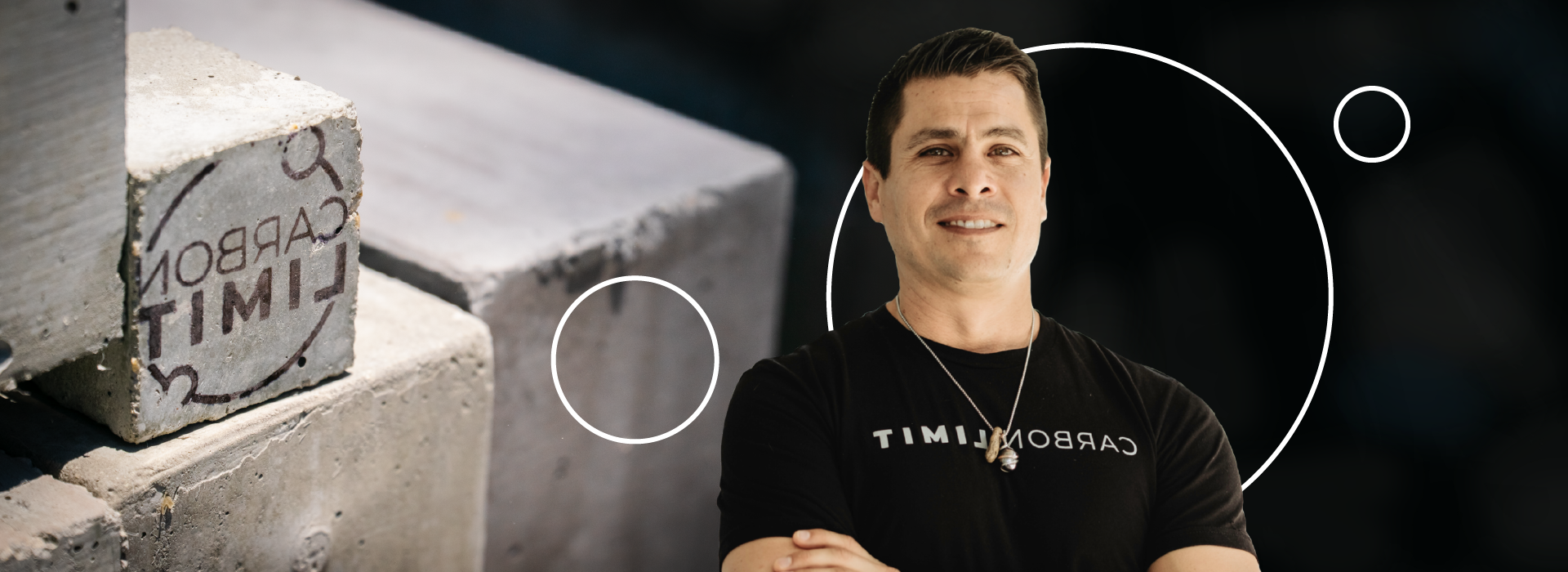06/02/2022
Business Spotlight: Decarbonizing Concrete
FAU Tech Runway Venture Class 9 Company Tackles Global Carbon Removal
The modern world is built with concrete, but it comes with a price – a giant carbon footprint.
Tim Sperry of Boca Raton, Fla., said he believes that tackling the concrete industry is one of the quickest ways to make an impact on this footprint, and to do that, he created a nanotechnology that attracts, captures and stores carbon dioxide in concrete, permanently.
Founded in 2020, his company, called Carbon Limit, headquartered in Boca Raton, is part of venture class 9 at FAU Tech Runway, a start-up incubator which is part of FAU’s Innovation and Business Development pipeline.
Sperry said his motivation to build Carbon Limit came from the loss of a family member to lung cancer from air pollution. The loss left Sperry with a dedication to entrepreneurial efforts to research chemistry and find solutions to environmental issues. Using Google scholar, Sperry developed the carbon capture and storage technology.
The concrete and cement industries are responsible for 8% of the global carbon footprint, and are projected to increase, according to a 2018 report by the policy institute Chatham House, based in London. But, when concrete is made with Carbon Limit’s technology, instead of regular cement, the carbon footprint of the manufacturing process is reduced by 18 to 27%, according to Sperry. “That’s just the beginning,” he said. “Once the concrete is cured, it begins actively attracting CO2 pollution from the atmosphere and storing it, further reducing carbon dioxide. Our green cement technology lowers the carbon footprint of concrete and turns concrete into a CO2 sponge. … One mile stretch of expressway with our technology could reduce as much CO2 as 250,000 to 500,000 trees during an entire year.”
Tech Runway has contributed to Carbon Limit’s success, said Sperry, adding that Tech Runway connected him with the lead investor of Carbon Limit. “It’s been a great launchpad that helped us gain traction and have a leg up getting grants,” he said.
Carbon Limit also began pilot projects in South Florida, and is currently discussing the implementation of the technology for greener cities including the city of Miami, Miami-Dade County and Coconut Creek, he said. Carbon Limit was also recently accepted as one of 11 companies in North America to the second Google for Startups Accelerator: Climate Change.
The goal is to continue expanding, including licensing their technology to cement companies to scale globally, as well as selling the additive off the shelf, he said. Additionally, he plans to verify the technology to qualify for carbon credits. “Our main mission and goal — because we are a mission driven company — is to hit that gigaton scale, to remove a billion tons of CO2 from our environment,” he said.
FAU Tech Runway is powered by FAU's Innovation and Business Development pipeline.
If you would like more information, please contact us at dorcommunications@lvyanbo.com.
